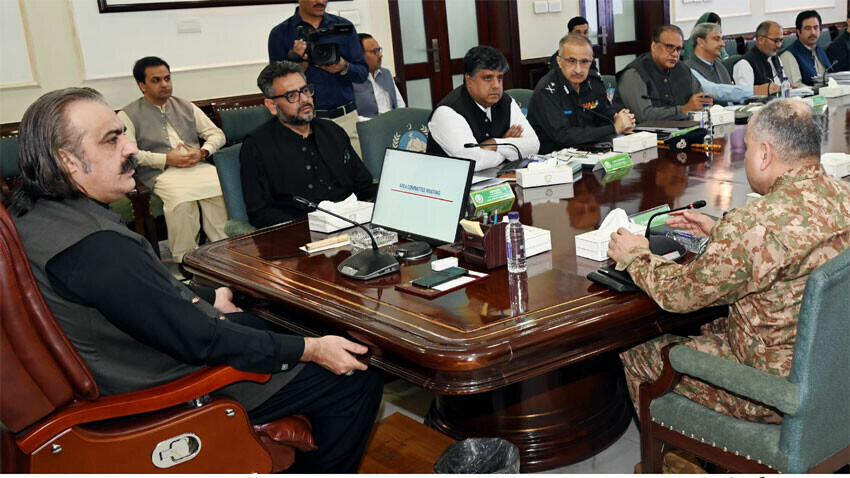KP Apex Committee
The Khyber Pakhtunkhwa (KP) apex committee took decisive action on Friday to dismantle all military bunkers in Kurram District, aiming to restore peace in the region, which has been plagued by intense tribal clashes over the past weeks.
These clashes have resulted in significant casualties, with at least 130 people killed since last month, and scores more wounded. Additionally, many have been displaced due to the ongoing violence. The conflict erupted following an attack on a convoy that claimed the lives of 43 individuals.
Kurram, located on the border with Afghanistan, is facing severe shortages of food and medicine, particularly in areas most affected by the clashes.
As the violence continues, the provincial government struggles to address the deep-rooted tribal feuds that have been exacerbated by long-standing land disputes.
In response to the escalating situation, a jirga (tribal council) has been working on peace talks, but a permanent resolution has yet to be reached. The apex committee, chaired by KP Chief Minister Ali Amin Khan Gandapur, decided that the removal of military bunkers and heavy weapons would be essential for restoring lasting peace.
The committee issued a statement asserting that peace could not be achieved without the eradication of these bunkers and weapons, which have been used by opposing armed groups to target one another.
The provincial government has emphasized that the situation in Kurram will only stabilize if armed groups voluntarily surrender their heavy weapons and vacate the bunkers. The apex committee also committed to providing timely supplies of medicines and essential goods to residents affected by the violence.
The committee meeting, which involved senior civil and military officials, as well as members of the provincial cabinet and district administrations, focused on reviewing the ongoing efforts to restore peace and determine the next steps.
The meeting also discussed the progress made by the “grand jirga,” which has been engaged in dialogue with representatives from the conflicting tribes. While the jirga has been working toward a long-term solution, a permanent peace agreement remains elusive.
As part of its efforts to alleviate the immediate hardships in Kurram, the provincial government has also announced plans to provide wheat to residents at subsidized rates. The food department and district administration have been directed to implement this measure promptly.
Furthermore, the government has continued to send medical supplies to Kurram via helicopter, with two consignments of emergency medicines and vaccines delivered to the Sadda area.
In addition to these efforts, Interior Minister Mohsin Naqvi met with CM Gandapur in Peshawar, where they discussed increasing the capabilities of law enforcement agencies in KP to maintain peace.
Naqvi expressed his full support for the measures and stressed the importance of involving all stakeholders in the peace process for long-term stability in the region. Both leaders also paid tribute to the security personnel who lost their lives while fighting terrorism.
This comprehensive approach, involving both military action and diplomatic efforts through the jirga, aims to bring an end to the violence and ensure that the residents of Kurram can return to a peaceful and stable life.
I am a dynamic professional, specializing in Peace and Conflict Studies, Conflict Management and Resolution, and International Relations. My expertise is particularly focused on South Asian Conflicts and the intricacies of the Indian Ocean and Asia Pacific Politics. With my skills as a Content Writer, I serve as a bridge between academia and the public, translating complex global issues into accessible narratives. My passion for fostering understanding and cooperation on the national and international stage drives me to make meaningful contributions to peace and global discourse.










